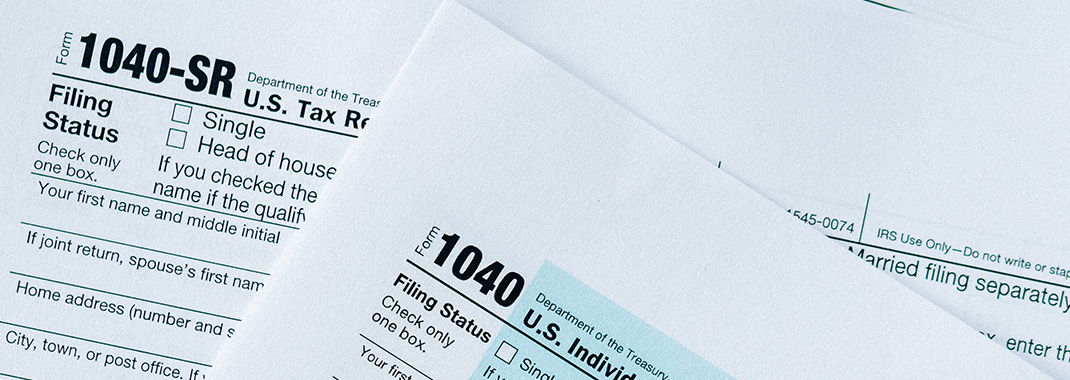Most products on this page are from partners who may compensate us. This may influence which products we write about and where and how they appear on the page. However, opinions expressed here are the author's alone, not those of any bank, credit card issuer, airline or hotel chain. This page may include information about American Express products currently unavailable on Slickdeals. American Express is not a partner of Slickdeals.
Requesting an extension to file your income tax return has become common among taxpayers in the United States. According to the Internal Revenue Service (IRS), an estimated 19 million taxpayers requested an extension in 2021.
Whether you plan to file by the regular deadline or need an extension, make sure you are aware of all the relevant filing deadlines so you don't find yourself in trouble with the IRS.
What Tax Documents Should I Look Out for Before Filing?
The U.S. tax code can be complicated, with various forms that taxpayers need to file to report their income sources. Here are the most common tax forms and their respective deadlines.
Review the tax filing deadlines for each form below, including the due dates for businesses or employers to send forms and the filing dates for individual taxpayers.
- W-2 Form: Employers must send by January 31, 2023
- Form W-2 contains information about your employee earnings, any taxes withheld and other employer-provided benefits. Your employer must provide your W-2 Form by January 31, 2023.
- Form 1099: Employers must send by January 31,
2023 - Form 1099 also serves as an income report but for independent contractors (self-employed individuals). Independent contractors receive their Form 1099 from individuals or companies that they've provided service for. A company has until January 31,
2023 , to send Form 1099. - Recipients must file by February 28, 2023 (on paper) or March 31, 2023 (electronically).
- Form 1099 also serves as an income report but for independent contractors (self-employed individuals). Independent contractors receive their Form 1099 from individuals or companies that they've provided service for. A company has until January 31,
- Form 1099-B: Brokers must send by February 15,
2023 - Form 1099-B is a record of gains and losses from transactions made through a broker or barter exchange.
- Recipients must file by February 28, 2023 (on paper) or March 31, 2023 (electronically).
- Form 1099-S: Lenders or agents must send by February 15, 2023
- Form 1099-S is used to record a sale or exchange of real estate. Form 1099-S recipients must receive their copies by February 15,
2023 . - Recipients must file by February 28, 2023 (on paper) or March 31, 2023 (electronically).
- Form 1099-S is used to record a sale or exchange of real estate. Form 1099-S recipients must receive their copies by February 15,
- Form 1099-MISC: Businesses must send by January 31,
2023 - The Form 1099-MISC is used to report miscellaneous income, including nonemployee compensations such as royalties, rents, prizes, fishing boat and crop insurance proceeds, and payments to an attorney.
- Recipients must file by February 28, 2023 (on paper) or March 31, 2023 (electronically).
- Form Schedule H for Form 1040: File by April 18,
2023 - People file Schedule H to report the wages paid to their household employees - like housekeepers or nannies - and determine how much household employment tax they need to pay. They then use this information on their Form 1040, which is used to file annual income tax returns.
- Form 1040-SR: File by April 18, 2023
- The IRS also provides Form 1040-SR for taxpayers at least 65 years old. Form 1040-SR is essentially the same as Form 1040, but it has larger font sizes and some options exclusively available for senior citizens. As with a regular Form 1040, you should submit Form 1040-SR by April 18.
 Related Article
Related Article
9 Best and Cheapest Online Tax Services in November 2025
When Are Taxes Due in 2023?
The deadline for filing your taxes is April 18, 2023.
The IRS begins processing tax returns from
When Are My Taxes Due If I Filed for an Extension?
If you file for an extension on your federal tax return, the tax extension deadline is
This extension deadline is only for filing tax returns, particularly for Form 1040 for individual taxpayers and Form 1120 for domestic corporations.
Note that this extension is only applicable for tax return filing, and does not give you more time to pay your tax bill. Taxpayers should still pay their tax balance by the April deadline.
How to File an Extension for Taxes
If you need more time to complete your income tax return, filing an extension is easy:
- File Form 4868 to request an automatic extension. Filing for an extension is free, and you have the option to do it electronically or through a paper form. This will extend the deadline by six months.
- Pay your tax bill by the April due date. Remember that even if you have requested an extension, you still need to pay your owed taxes by the April deadline. Failure to do so could result in fees and penalties.
Each state may also have their own rules for tax extensions, so be sure to double check your state's tax extension requirements.
Frequently Asked Questions (FAQs)
-
If you are due a refund and missed the federal tax filing deadline, you won’t incur any late payment penalties. But if you owe federal tax payments, you could be charged with penalties if you miss paying your bill by the April deadline.
-
Filing for an extension on your tax returns can give you more time to dive deeper into your earnings and accurately prepare your documents while avoiding a late filing penalty. However, a delay in filing your taxes also means a delayed tax refund.
-
The IRS Free File provides qualified taxpayers with access to tax software where they can file their tax returns for free. Taxpayers with an adjusted gross income of $73,000 or less qualify for the IRS Free File online service.
-
If you find out that you still owe taxes and you don’t have the cash to pay it in full before the first quarter payment deadline, you can apply for a payment plan schedule with the IRS. The IRS offers short-term and long-term payment plans, depending on your agreement with the IRS. Be sure to comply with your payment deadlines to avoid penalties.
-
Yes, you can use a credit card to pay your taxes. However, a credit card payment could charge you a fee, which usually ranges from 1.87% to 1.98% of your tax payment.
-
Yes, you can pay your tax bill online through the IRS website. The IRS accepts online payments through Direct Pay from your bank account.











